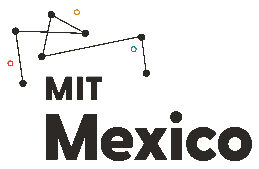Dear Merici Community,
We hope you are all well.
The gradual return to the face-to-face world has brought with it an intense period, particularly in the educational world. Perceptions of time and events are very different within different age groups. On returning to face-to-face classes our students have realised, at best, that they are not the same as they were before the pandemic: they are now at another developmental stage, with new and different needs. Some have even moved to a new school section or division. Their expectations and demands, both academic and social, have evolved. They are the same and yet they are not. Their school, their spaces, their teachers and even their way of learning have changed. Their bodies, minds and mindsets are different. The impact of a pandemic has made them more aware of their shared humanity, but also of their own personal and family stories. We must accept that the pandemic has brought change, disruption and crises. We must also recognise that there is some social effervescence, if we may call it so, as a result of all of the above.
There are vivid examples of what has happened. Think of that 6th grader, who suddenly goes home at the beginning of the pandemic and returns to set foot in his school and finds that he is in the middle of his secondary education, right in the second semester of the second year, and must face a myriad of subjects and expectations that he has not experienced before, at least not in that way. He finds that there is a rigor of citation and academic honesty in the preparation of a piece of work, that a process of analysis and synthesis is required in his readings, that he must write essays with a clear and well-argued thread. Can you imagine? What about those who lived the typically “happy” childhood of the age of nine, in the third year of primary school, and then return to find themselves among adolescents of 11+ years old; isn’t it natural that there should be a feeling of social inadequacy generated by the sudden insertion into a physical space and by the lack of rehearsal, scaffolding and gradual experience? And how do we glimpse the little 2nd grader who stopped attending classes when he was in the last year of pre-school and sees himself in a world of communication that demands creative response, bilingual tasks and a very different rhythm of work? Have we become aware of the challenge posed to us by the pandemic?
We need to recognise that the imbalance is not just for the learners, but for the adults around them. However, unlike them, we have more resources to understand, process and self-regulate.
Our mission is to capitalise on what we have experienced and for this we need safe environments where listening, agreement, honesty and collaboration are enhanced. While it is important to continue to evaluate the progress of our students in light of the grade-level standards, it is even more important to re-establish meaningful relationships in the immediate and wider groups that make up the school community, to nurture the processes of social-emotional development and to continue to develop skills for learning. As some pedagogical colleagues say, first it is “Maslow” and then “Bloom”, referring to the fact that we must first attend to basic human needs such as security and belonging (Maslow) and then aspire to follow Bloom’s taxonomy that involves the development of cognitive functions.
We will be working more on strengthening our social-emotional programmes, emphasising our shared humanity, the importance of assertive and respectful communication and an appreciation of the complementarity that diversity offers us. Today, more than ever, we need to recognise ourselves as a community and communicate in a proactive and supportive way, addressing our needs and those of our children/pupils, with serenity and coherence.
You will be hearing more about plans and actions for the next school year. We have plans in several areas to empower our educational model and make learning more meaningful and creative.
May this be the beginning of a promising spring season, full of light, warmth, hope and renewal.
With warm regards,
Prof. Alfonso García Williams,
Head of School.





